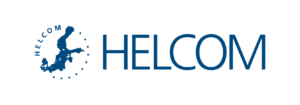HELCOM and Germany recently held a joint workshop on blue carbon to investigate its potential as a climate change mitigation option and to establish a common understanding of the meaning of “blue carbon” in the Baltic Sea region.
According to the workshop participants, conservation and restoration of blue carbon habitats should be part of the toolkit for mitigating climate change, as these measures do not pose a major environmental risk. At the same time, it was cautioned against using blue carbon as an excuse to not reduce greenhouse gas emissions at the source.
In addition to climate change, blue carbon should also be considered in the light of one of the other major crises we are currently facing, namely biodiversity loss, as improved marine ecosystem health is one of the co-benefits of blue carbon habitats.
On the definition, the workshop participants suggested that “blue carbon” should be understood as “one form of marine-based carbon dioxide removal” and “the net organic and inorganic carbon sequestered and stored in coastal, brackish and marine ecosystems”, which encompasses “coastal, brackish, and marine ecosystems, e.g., saltmarshes, seagrass beds, macroalgae and sediments”.
Held online on 17-18 November 2021 and co-organized by HELCOM and Germany, the workshop was attended by climate change and marine conservation experts from the Baltic Sea region. It was part of the work under the priorities set by the German chairmanship of HELCOM on climate change, notably on strengthening scientific and policy exchange on the effects of climate change in the Baltic Sea region as well as on potential mitigation and adaptation strategies.
The outcome of the workshop will also be presented at the next HELCOM Stakeholder Conference on Climate Change on 9-10 March 2022.

